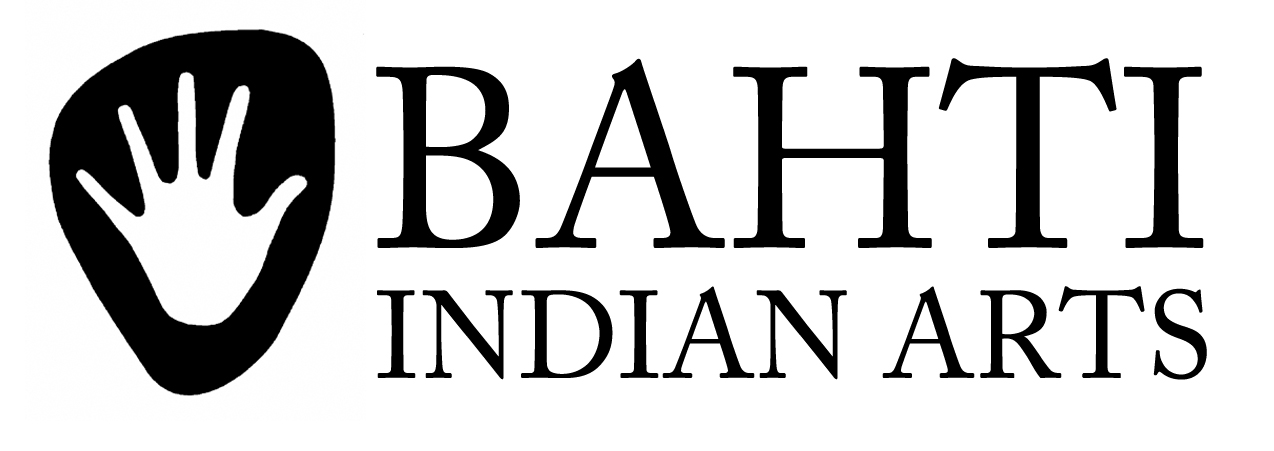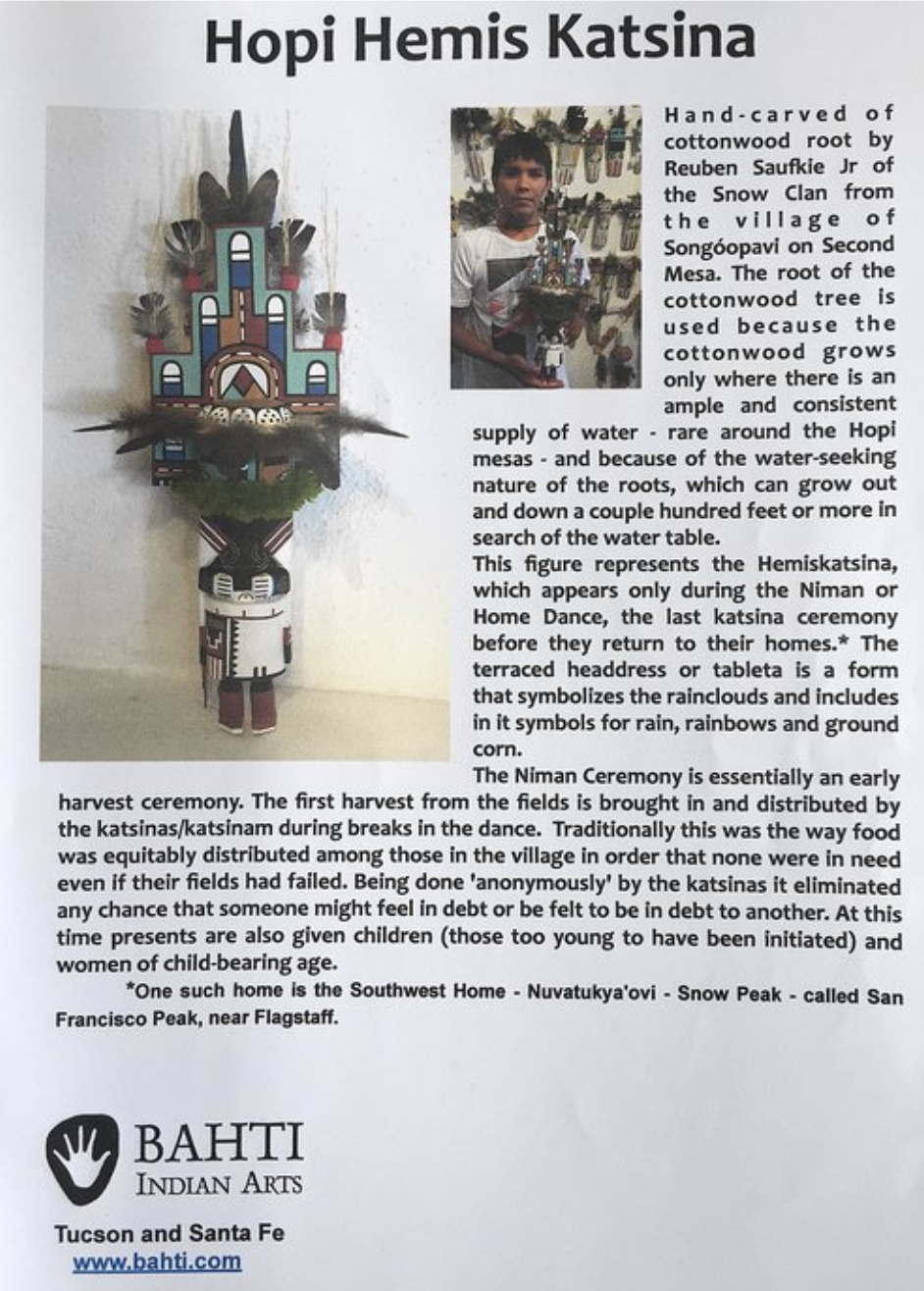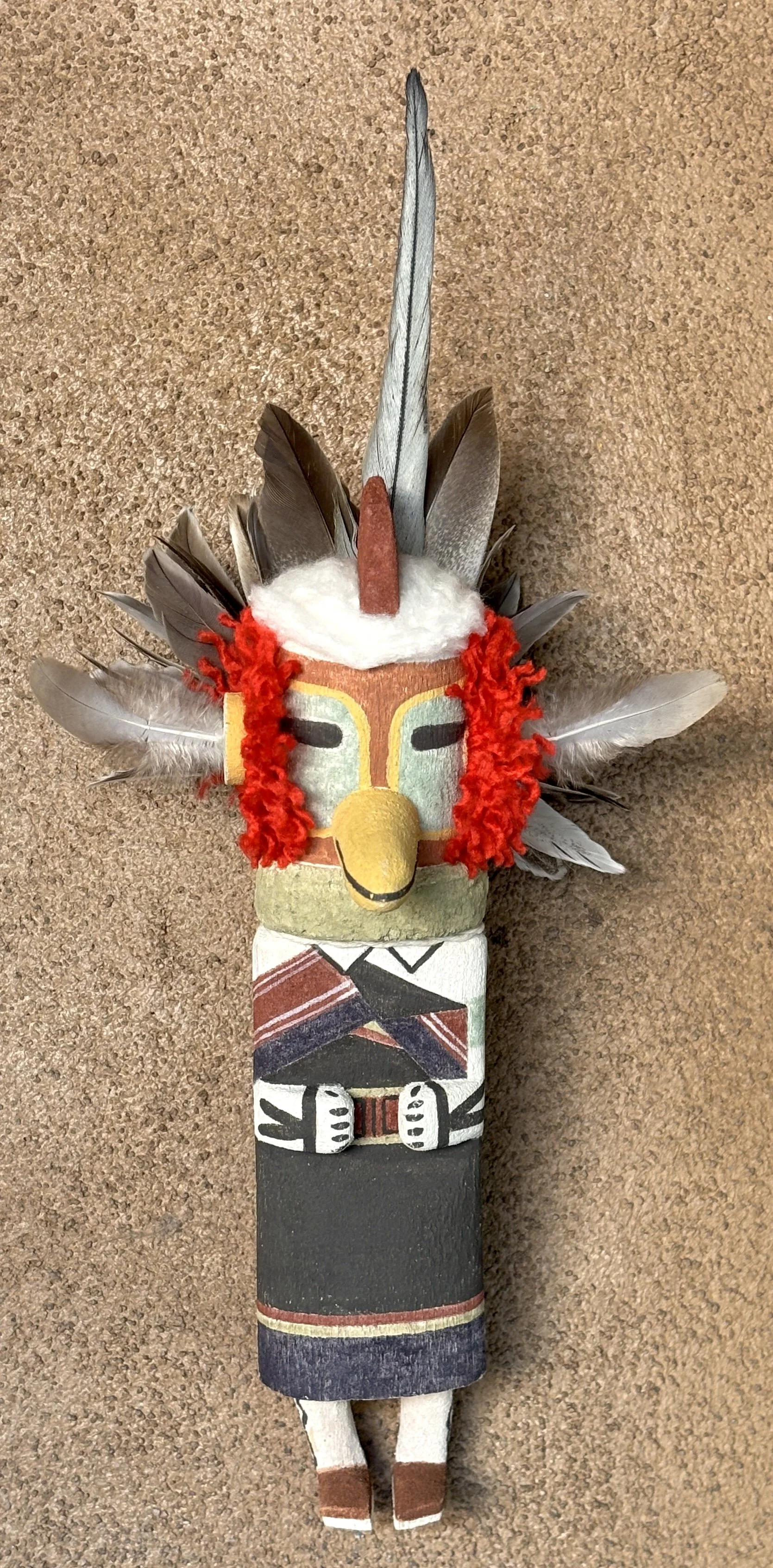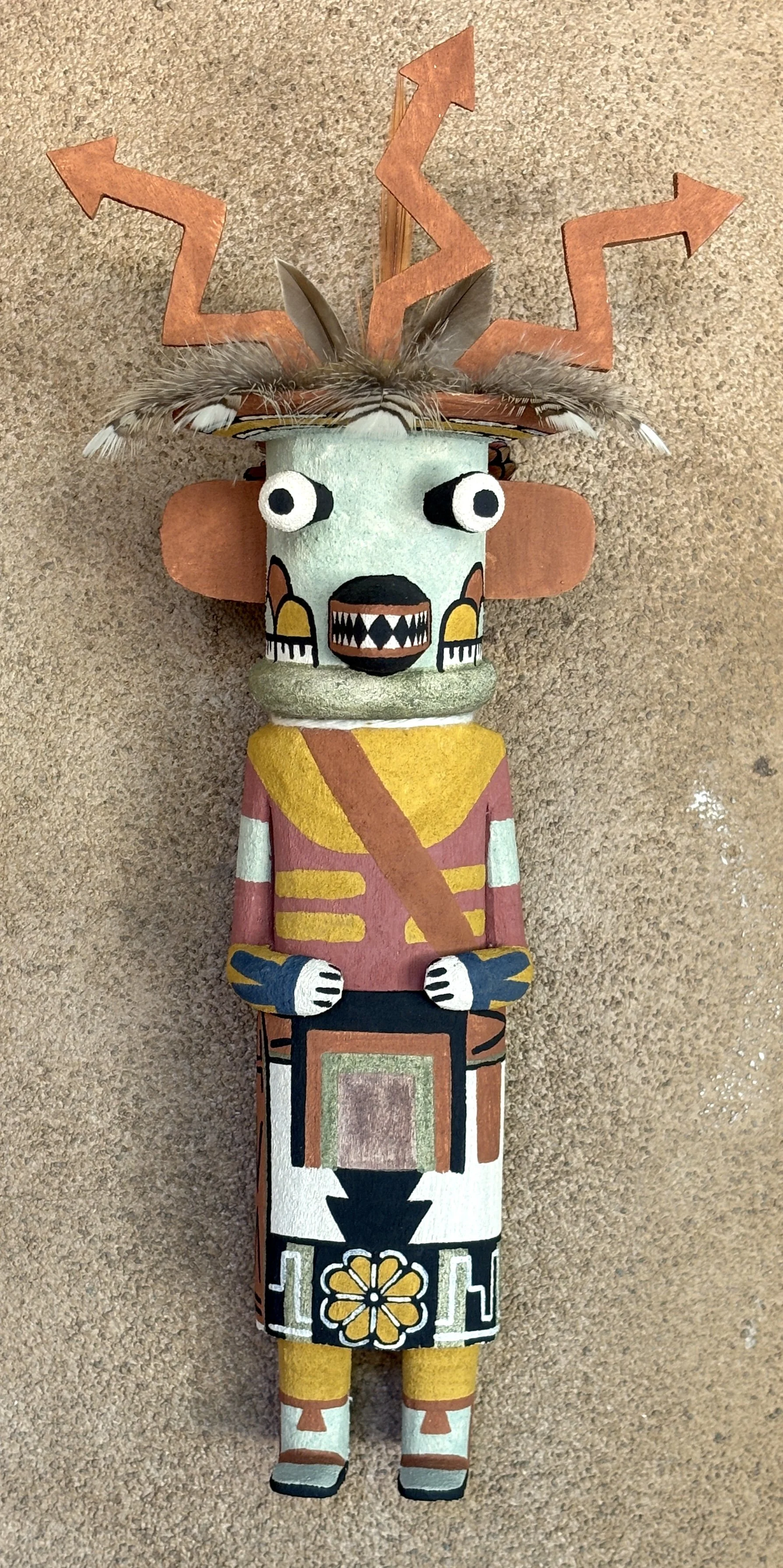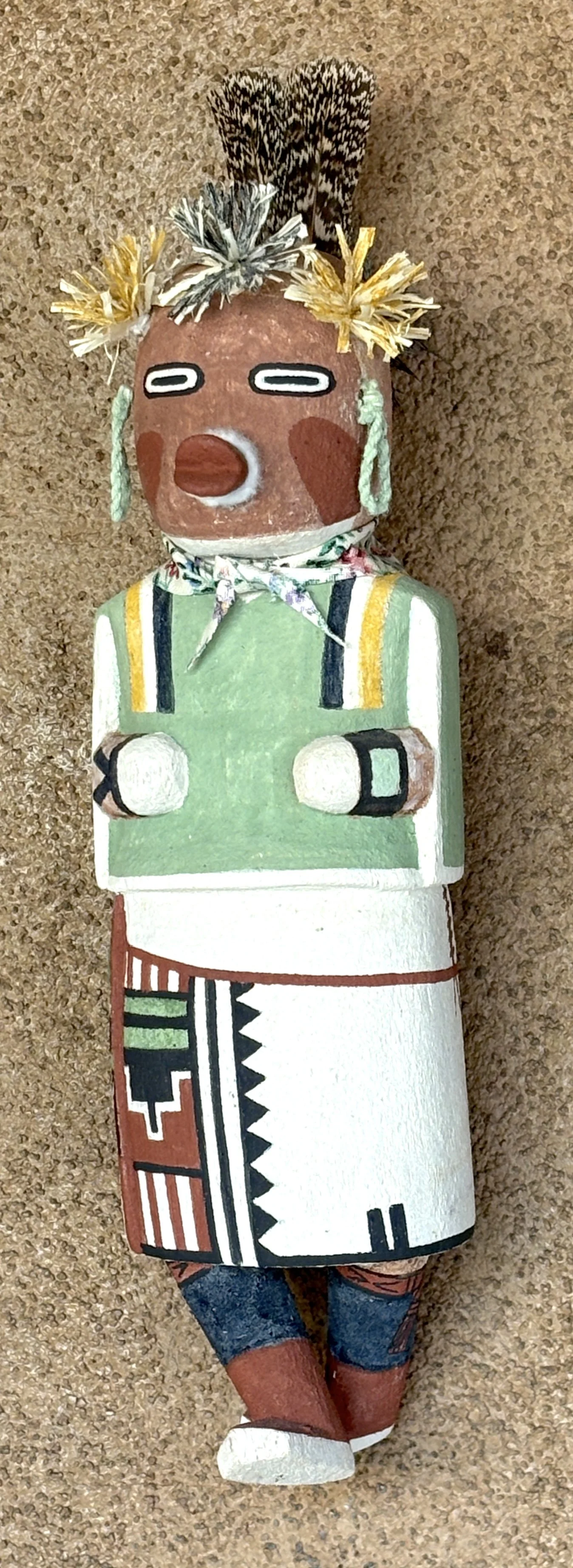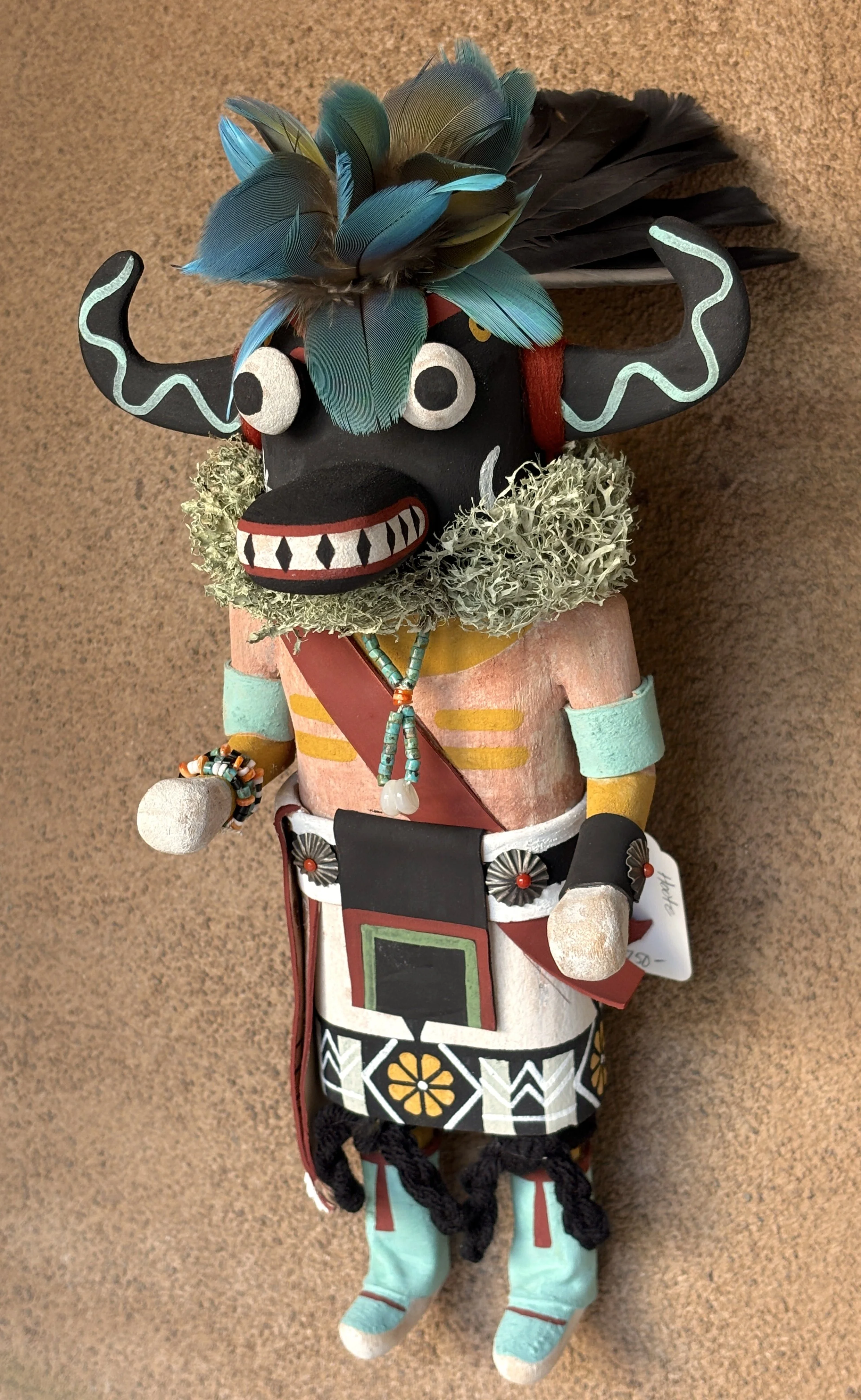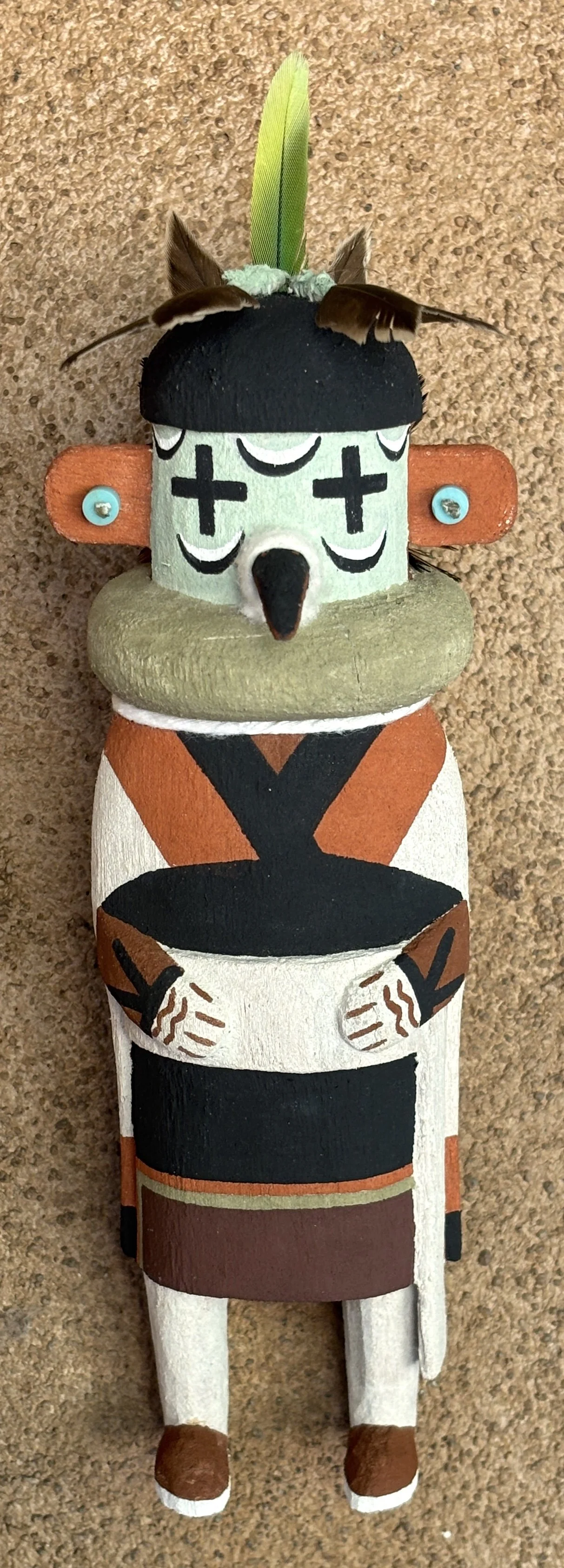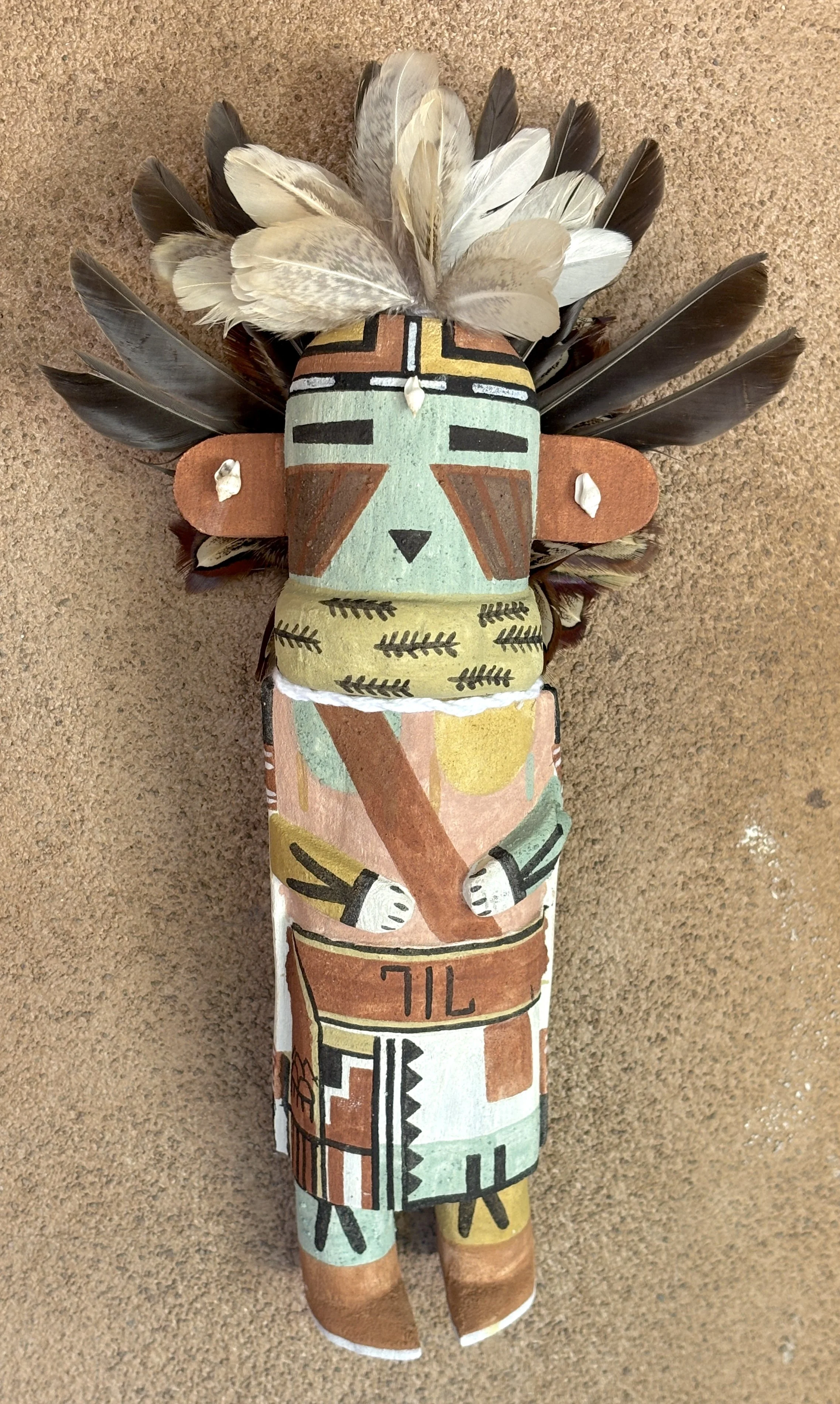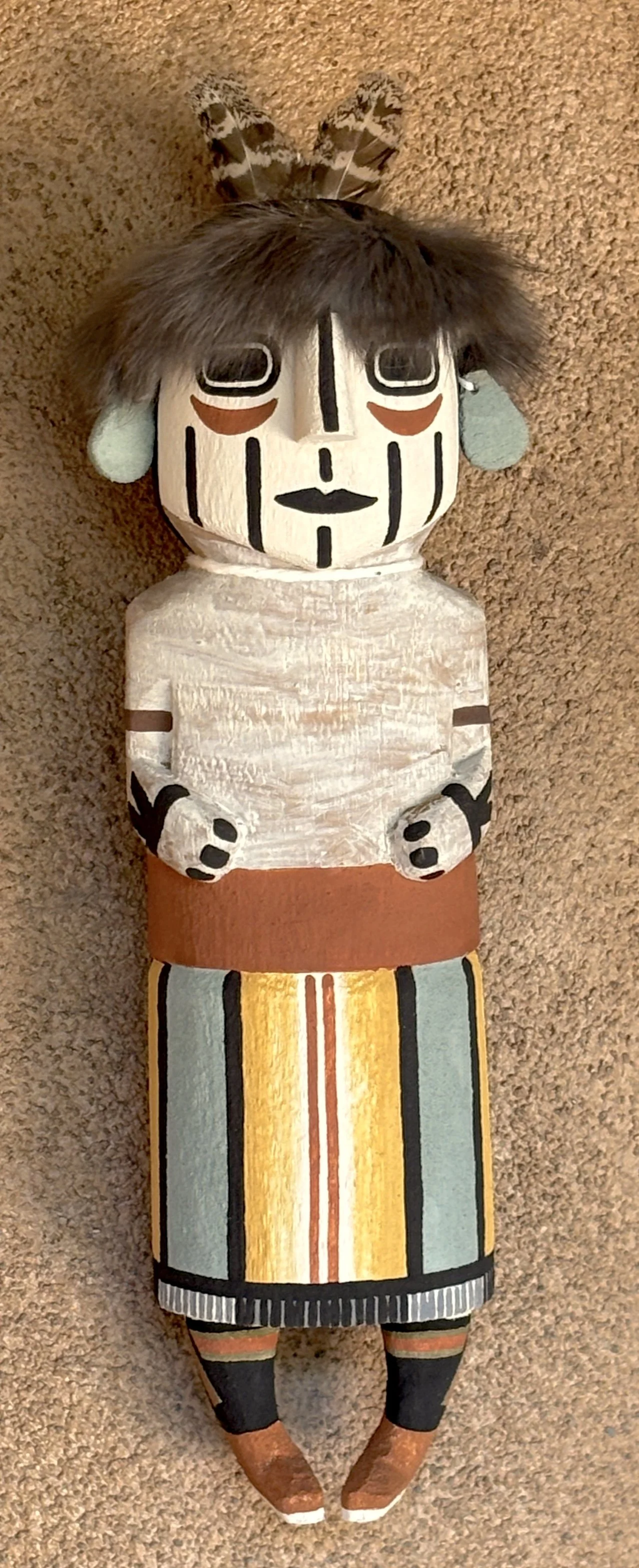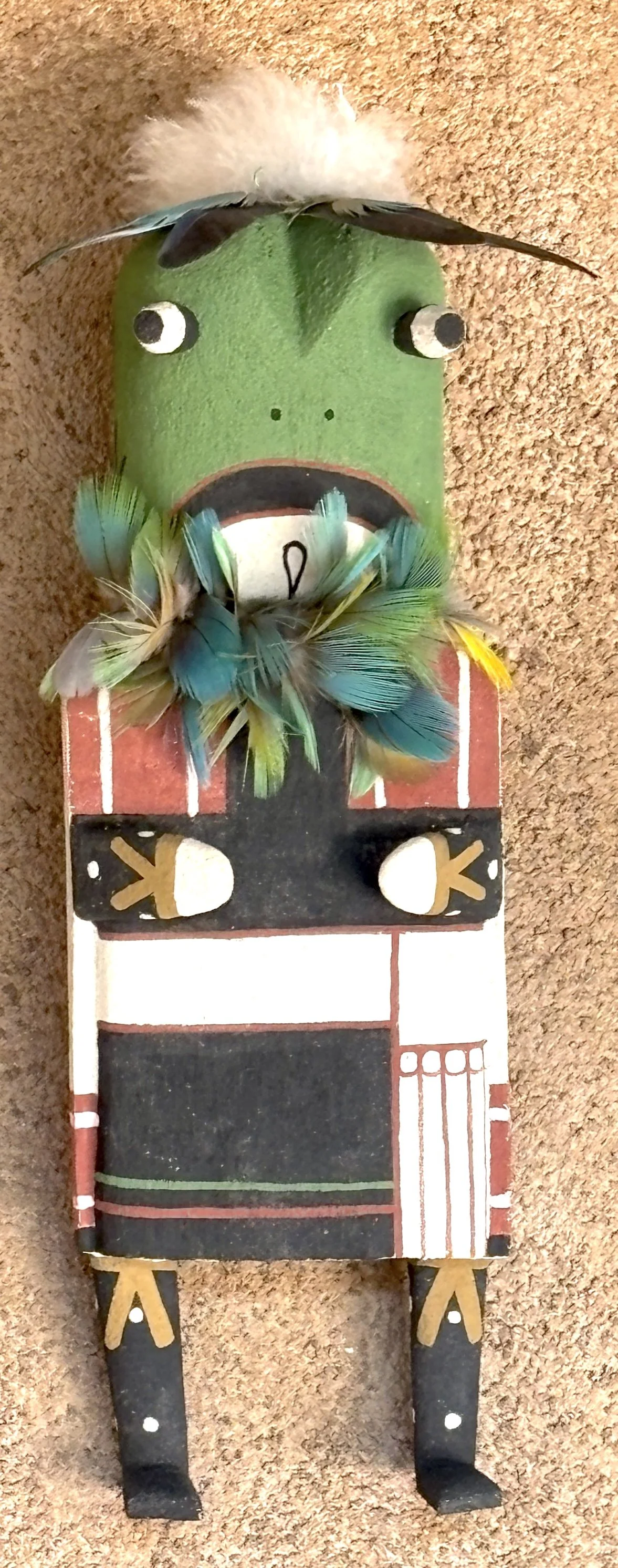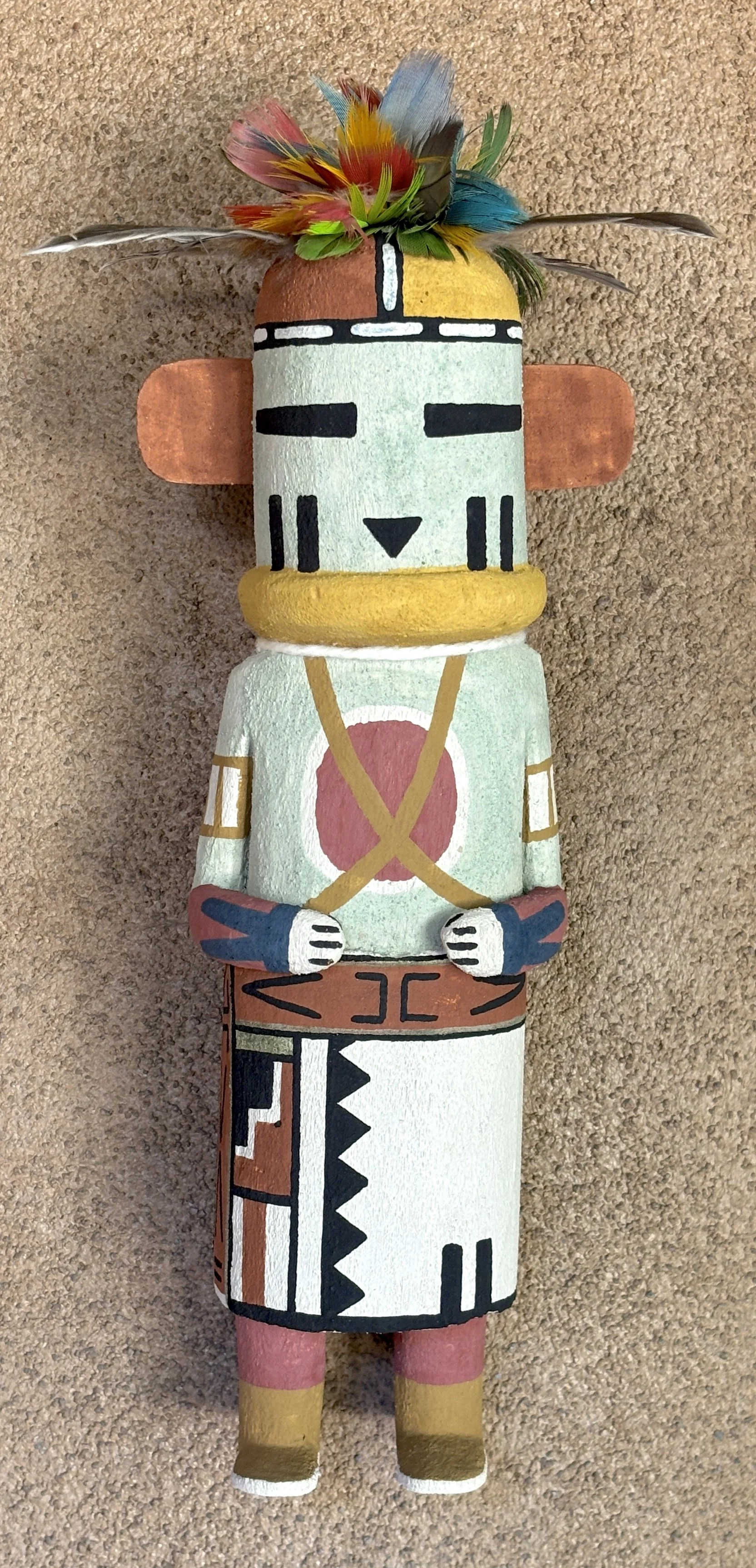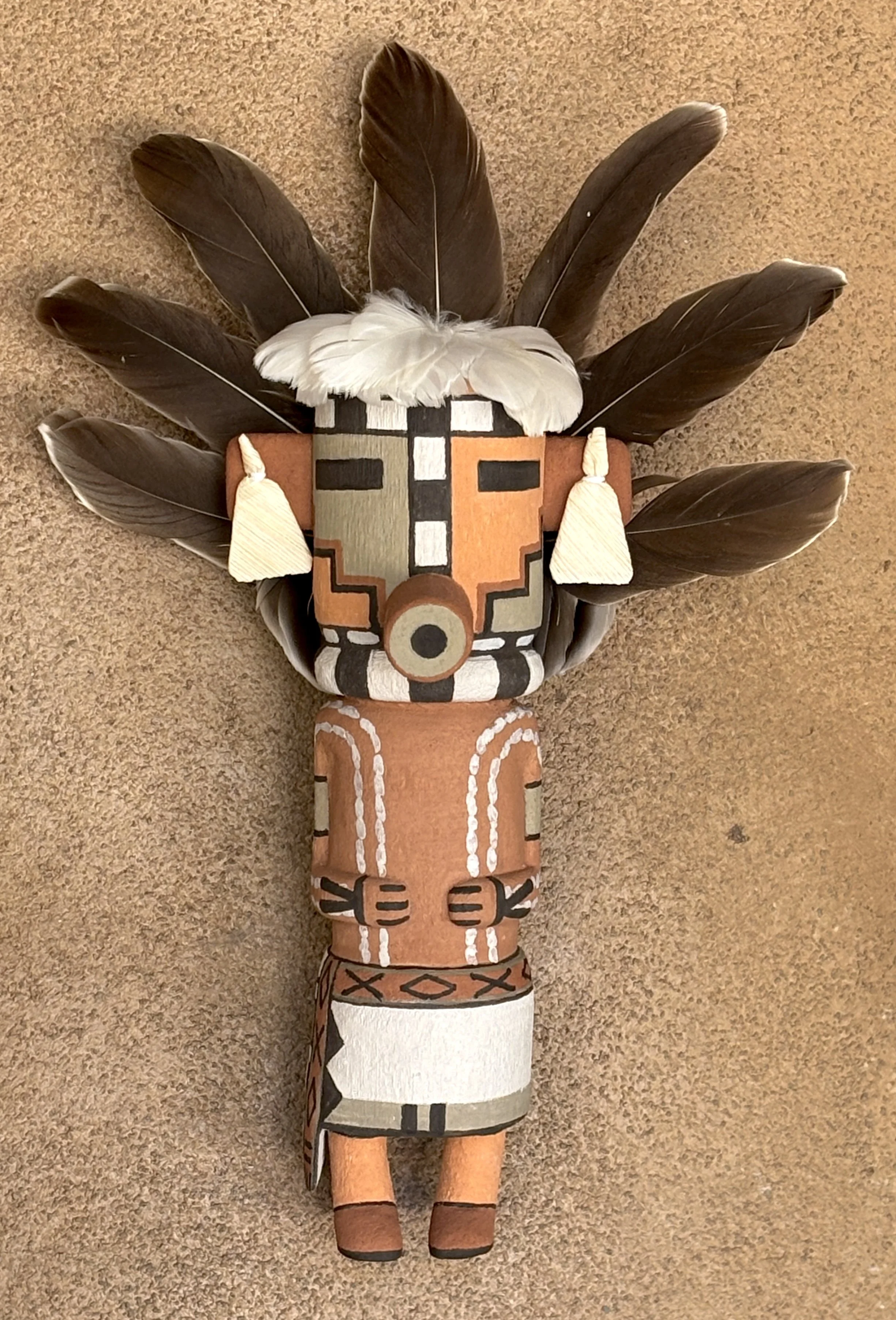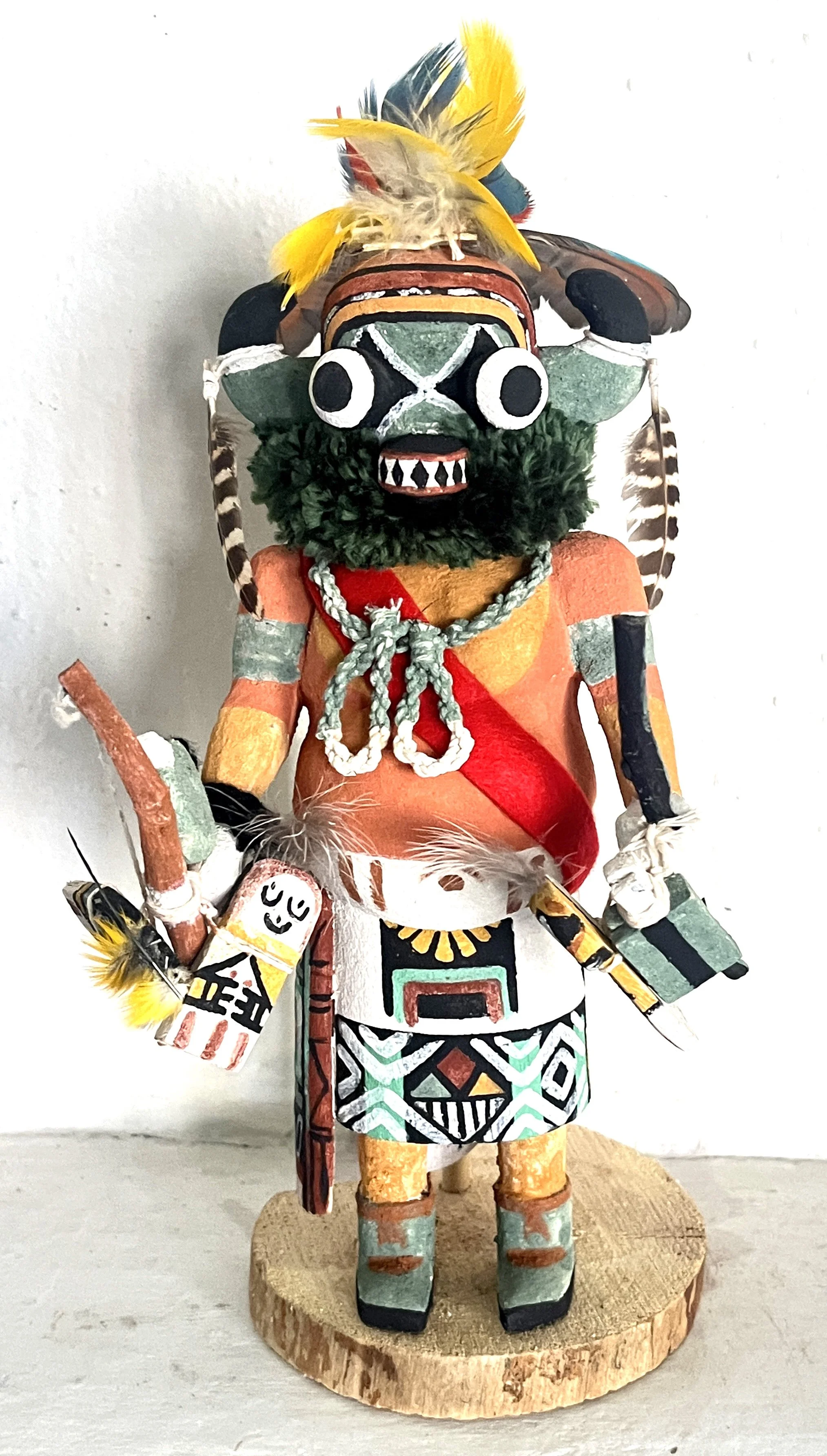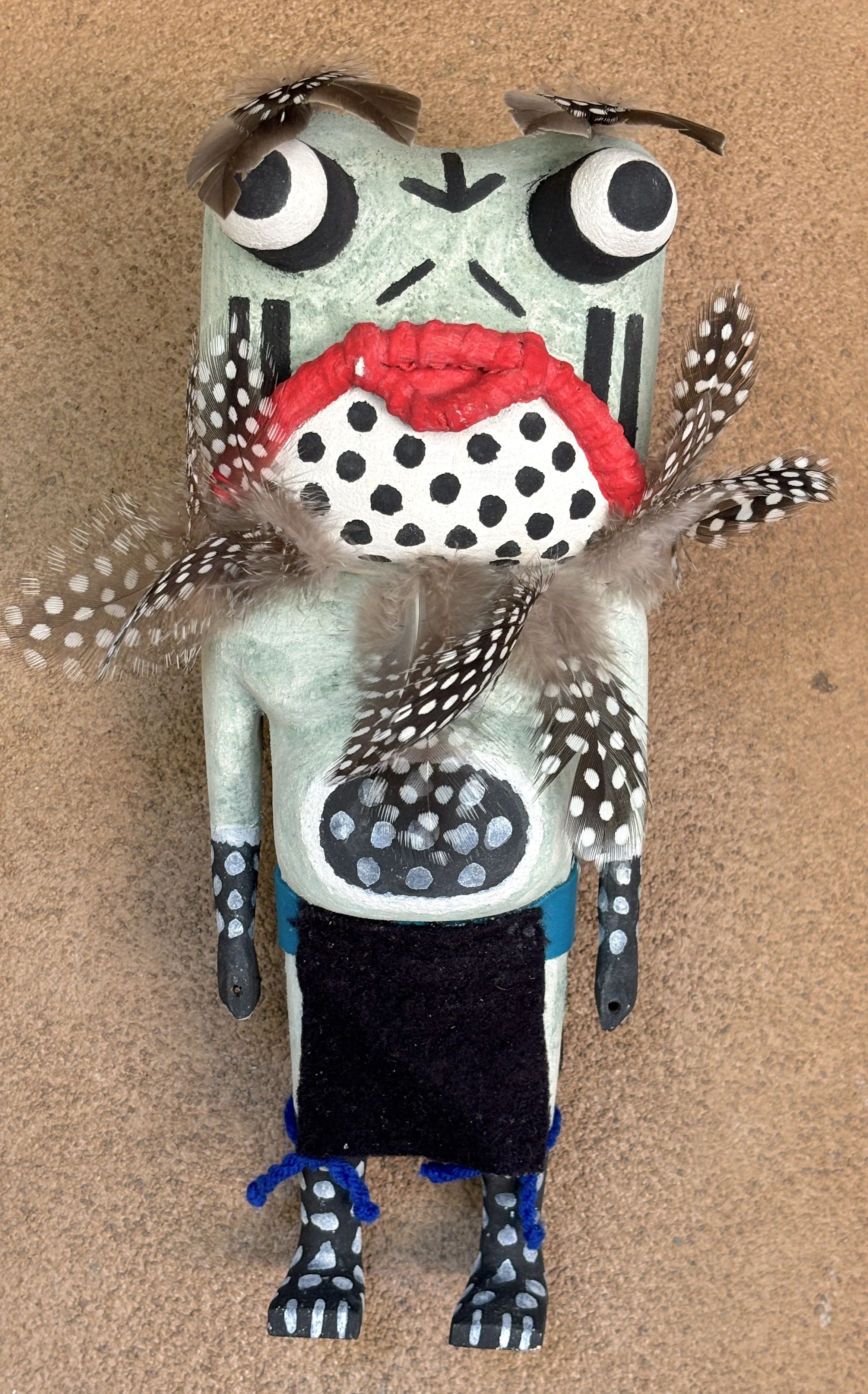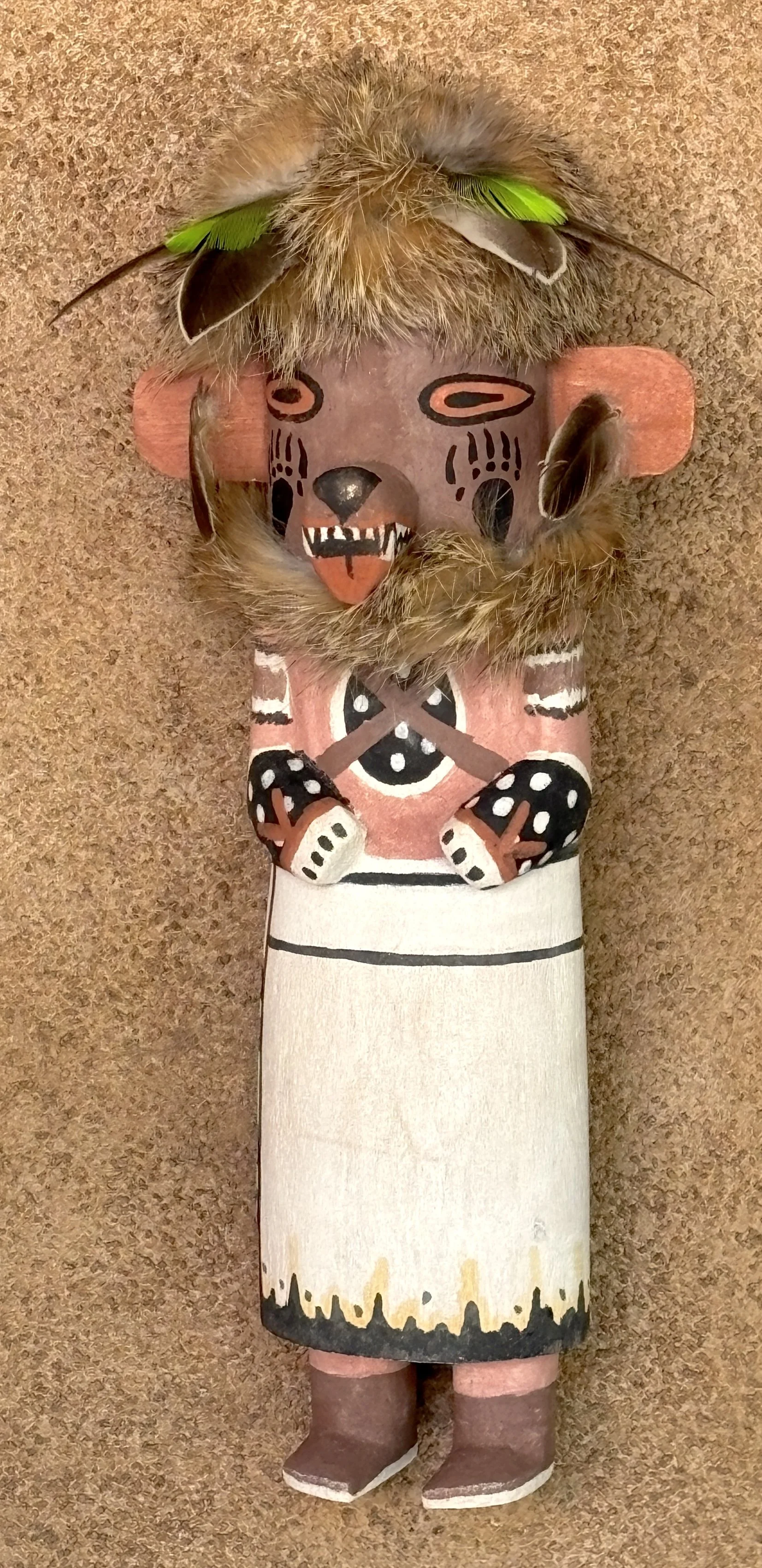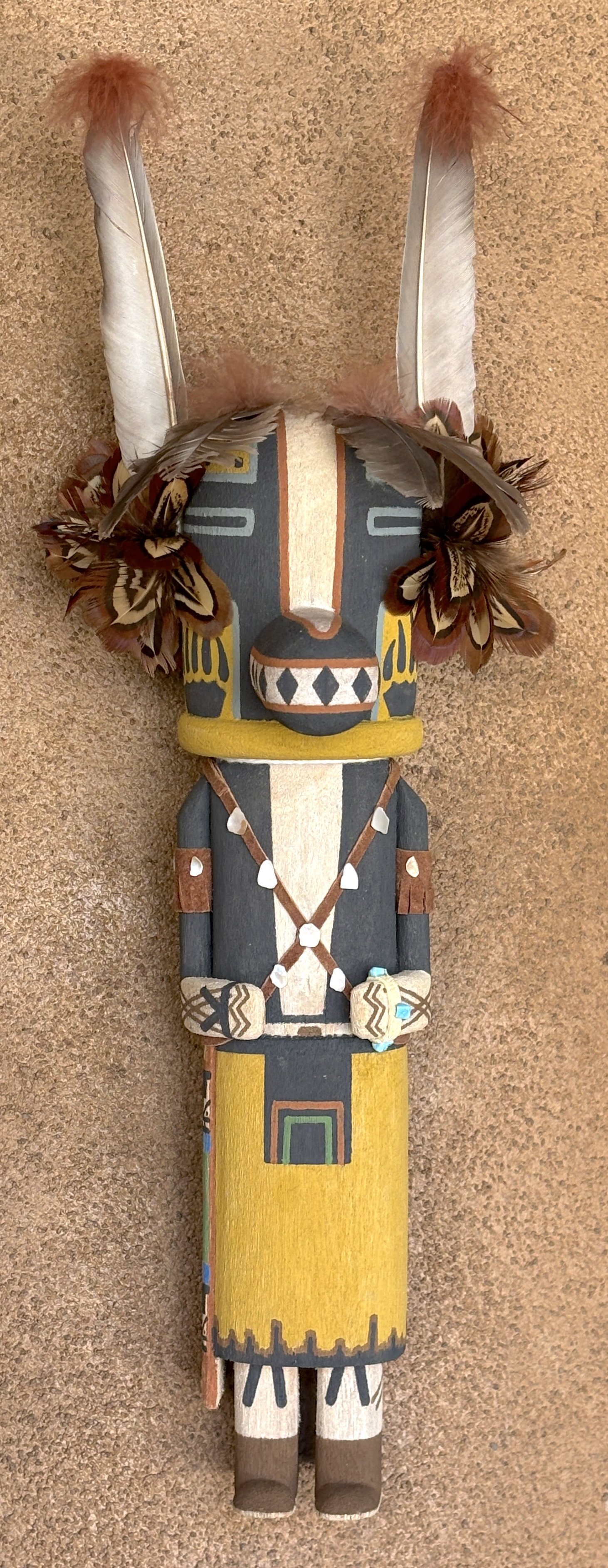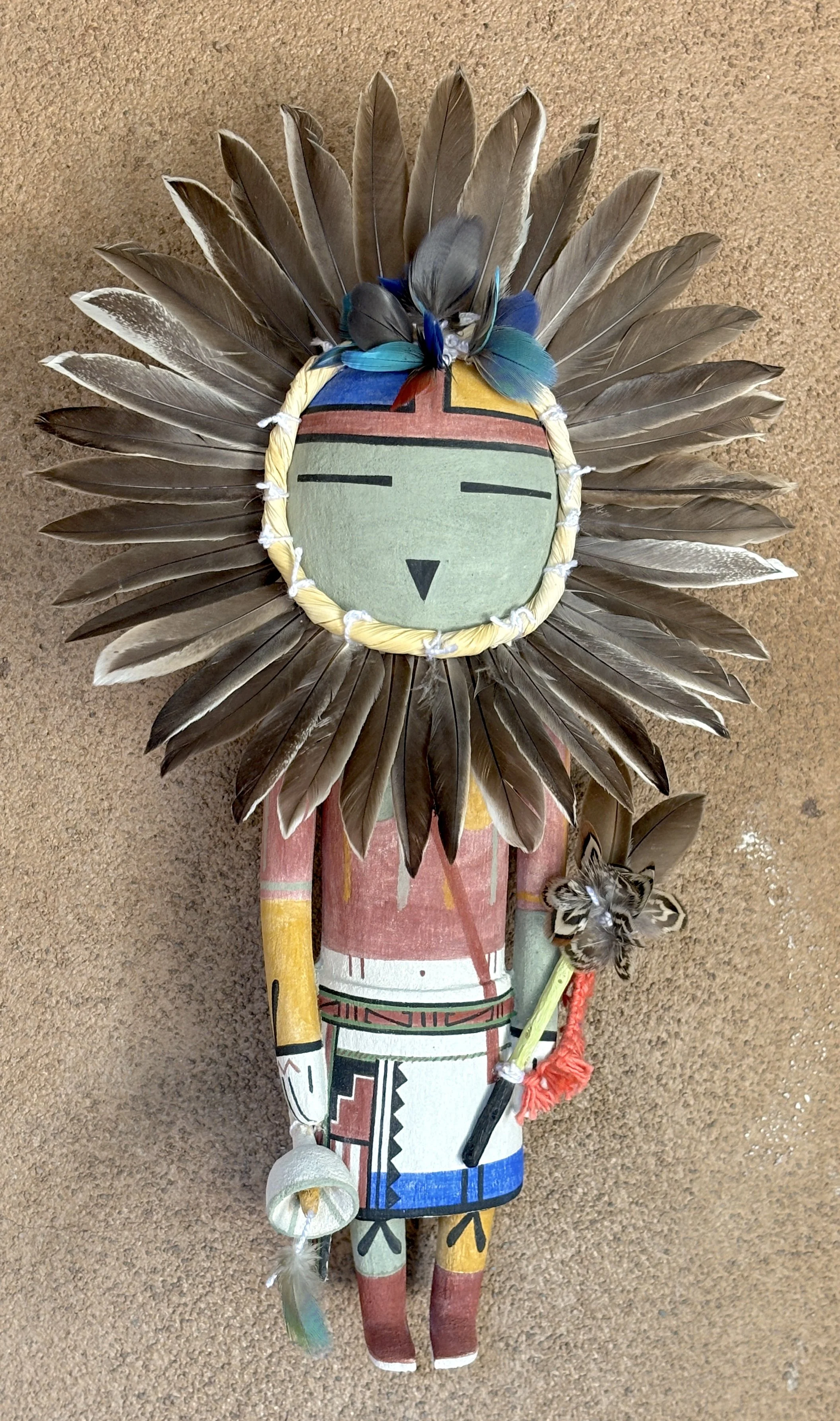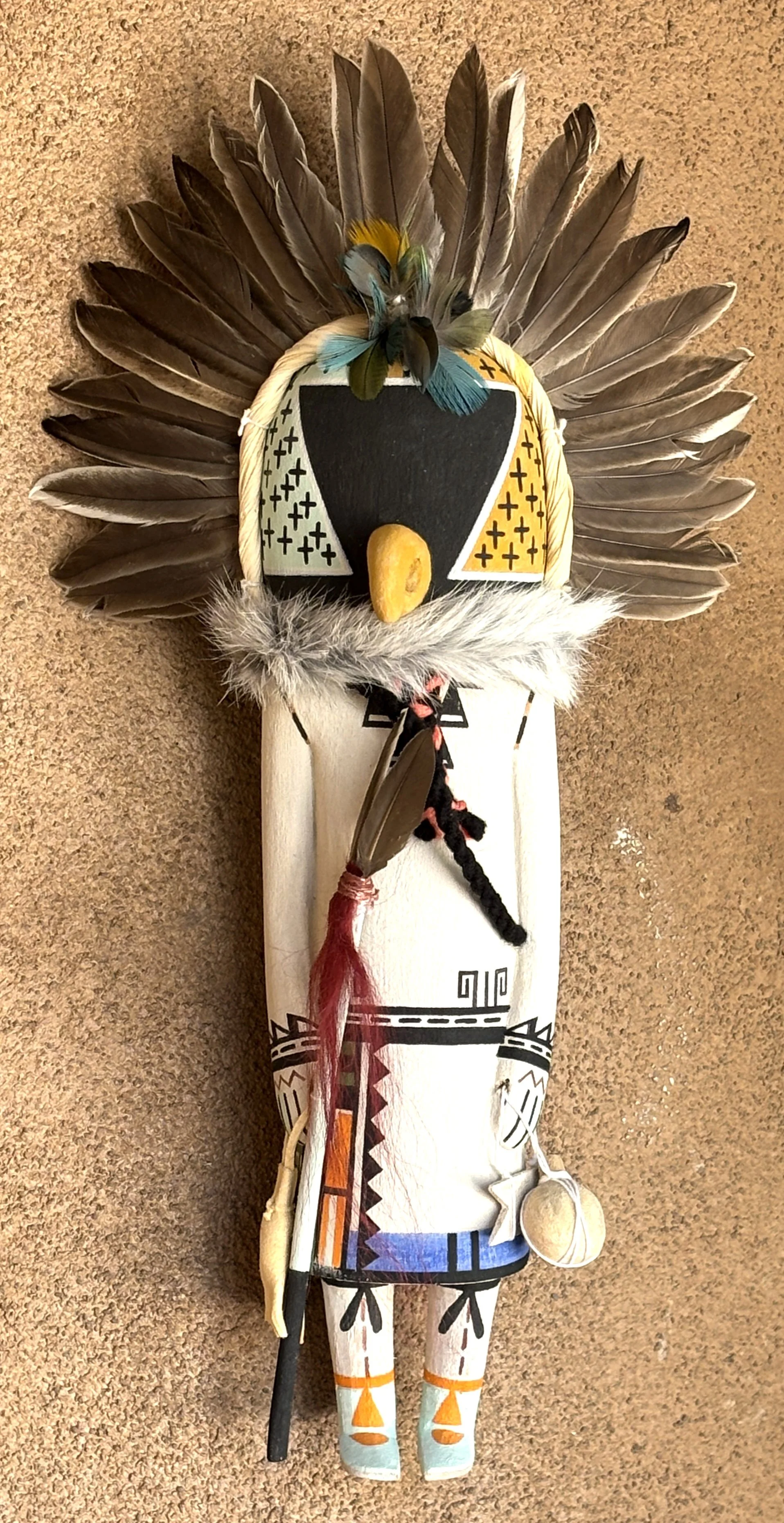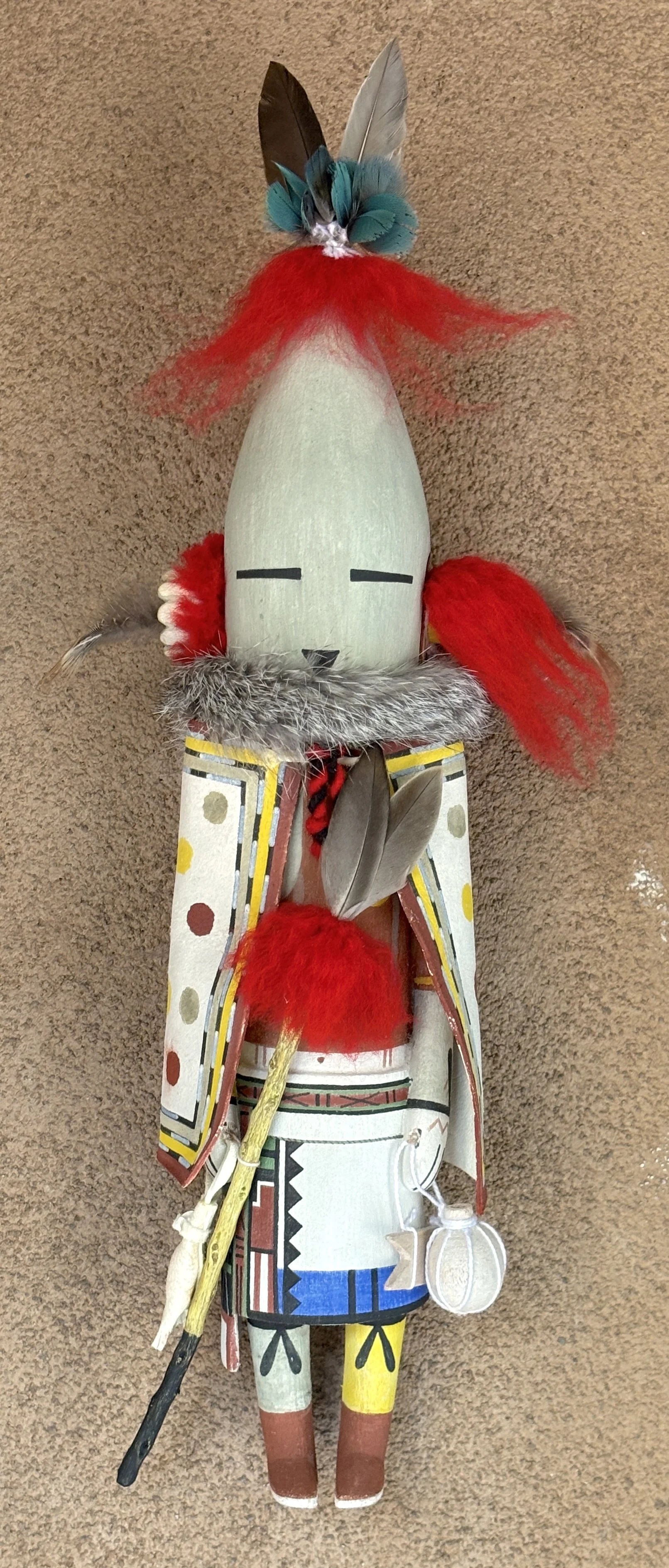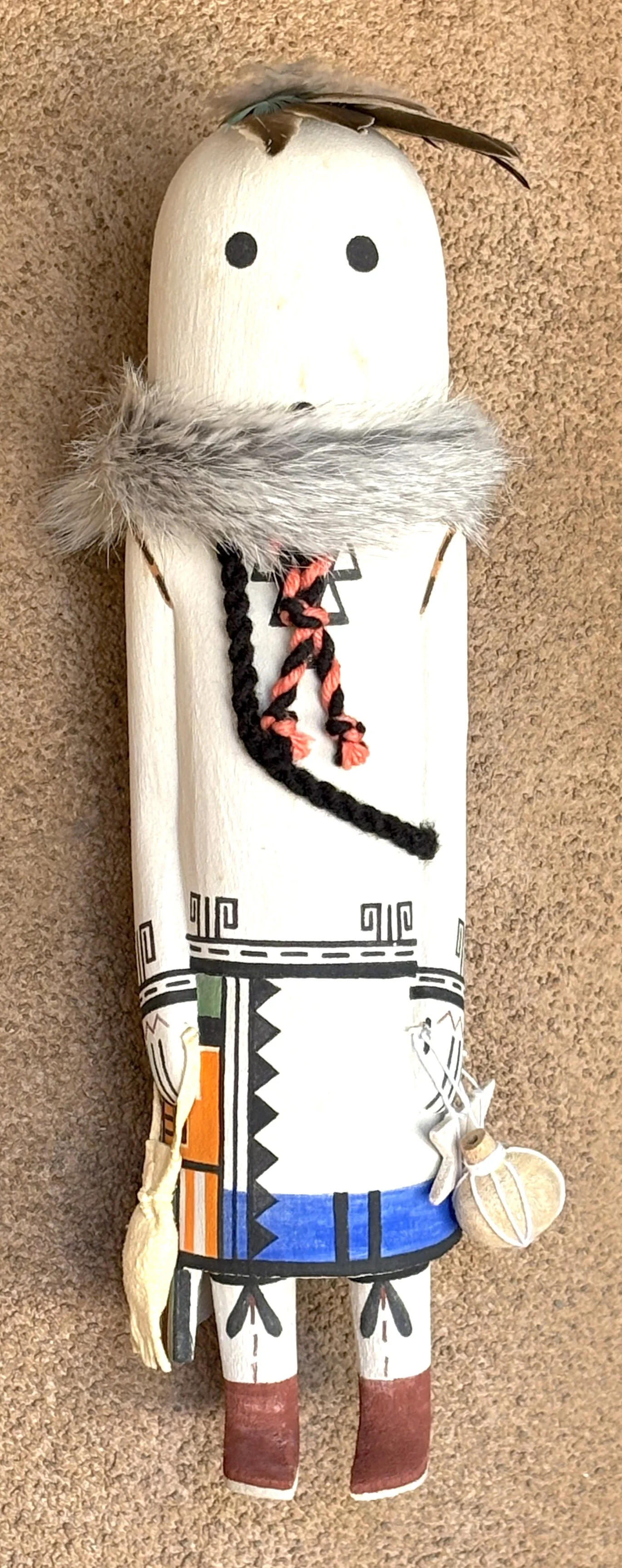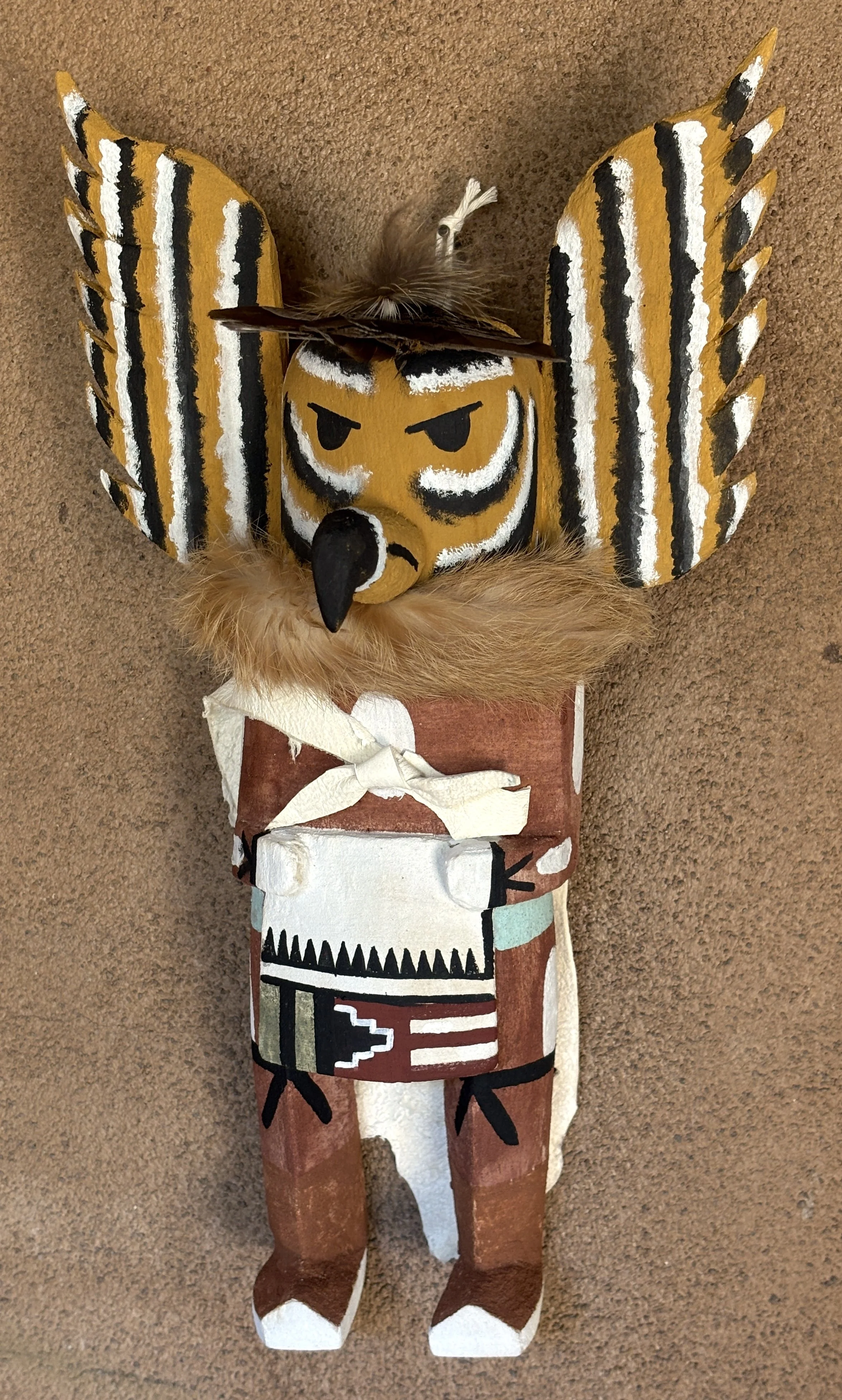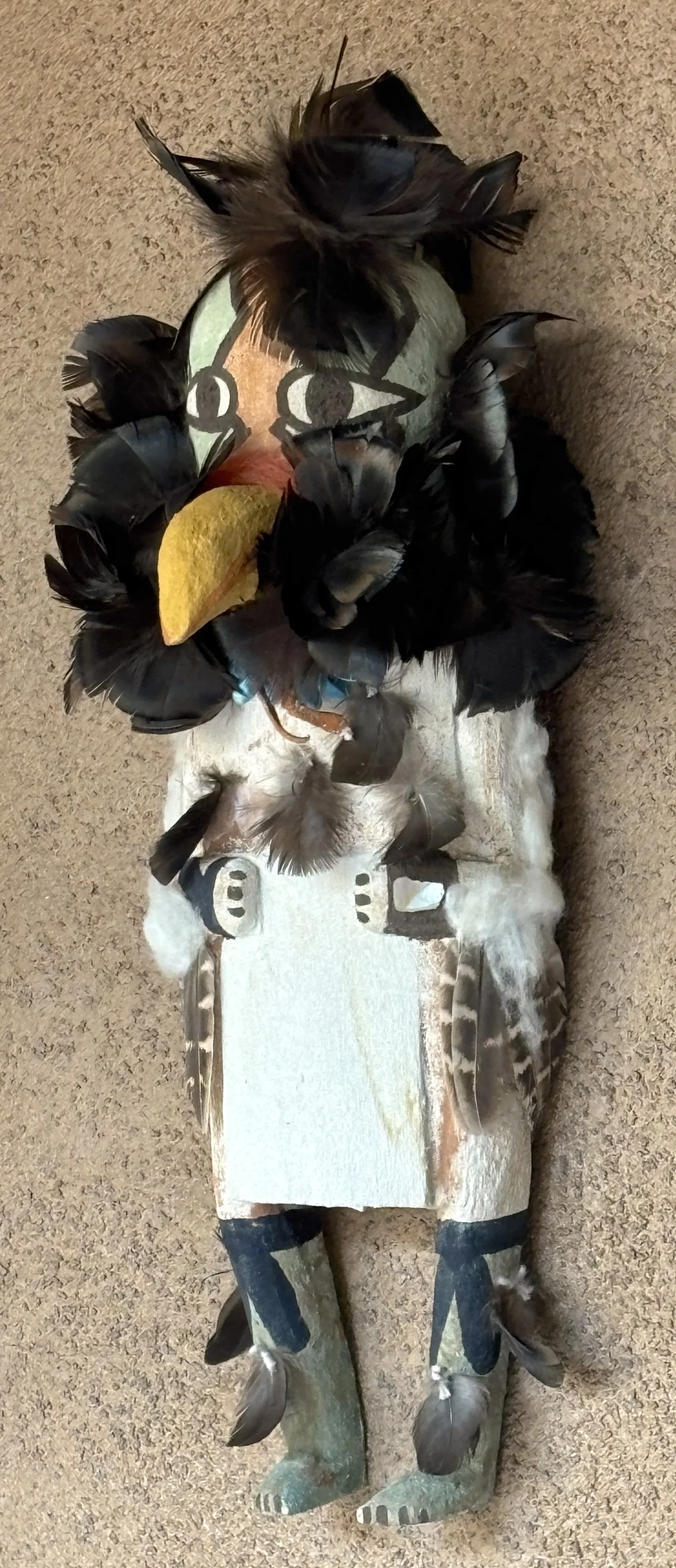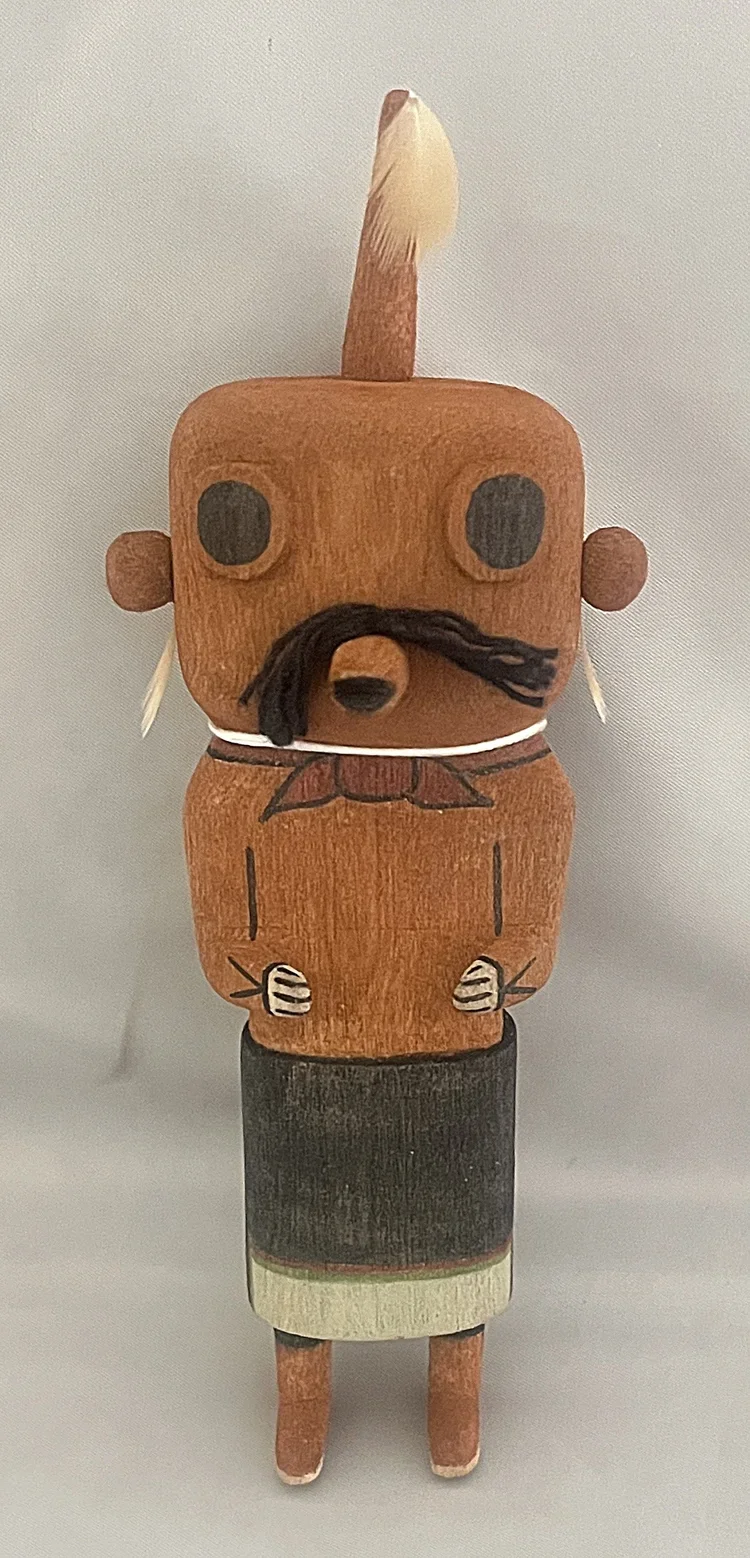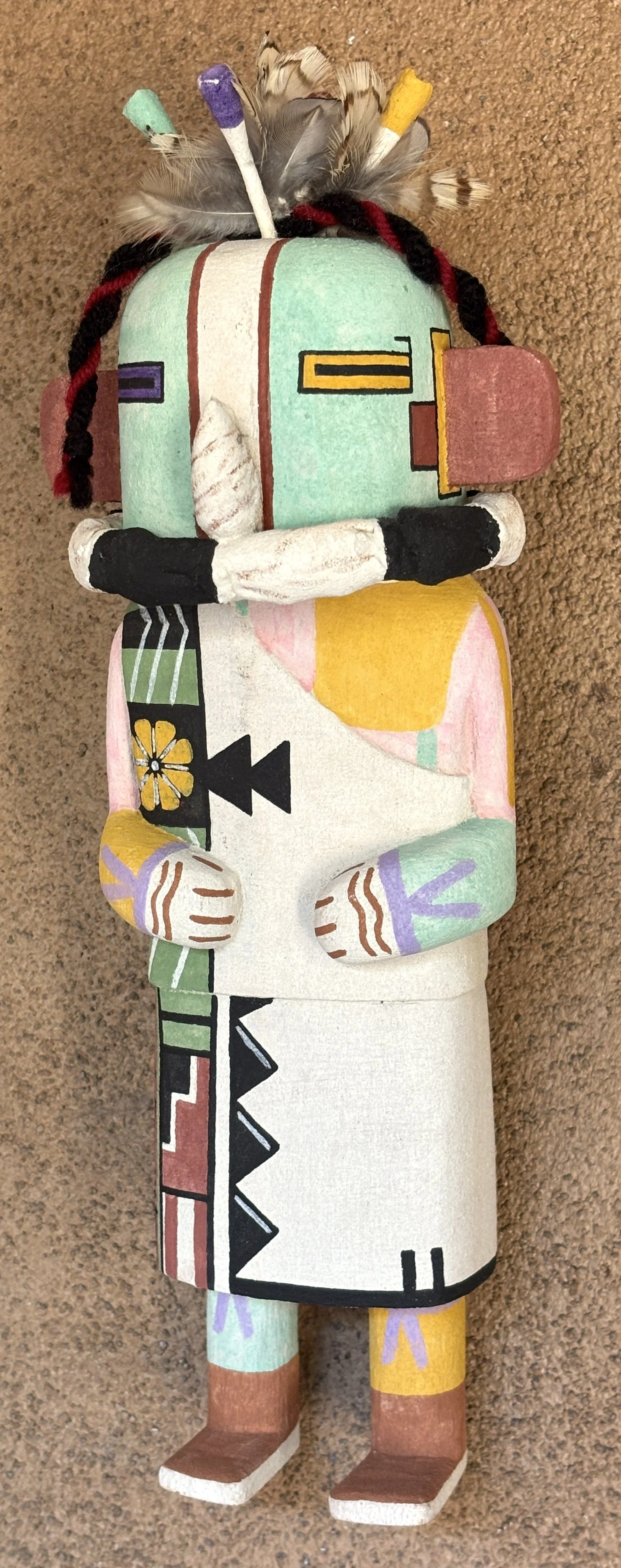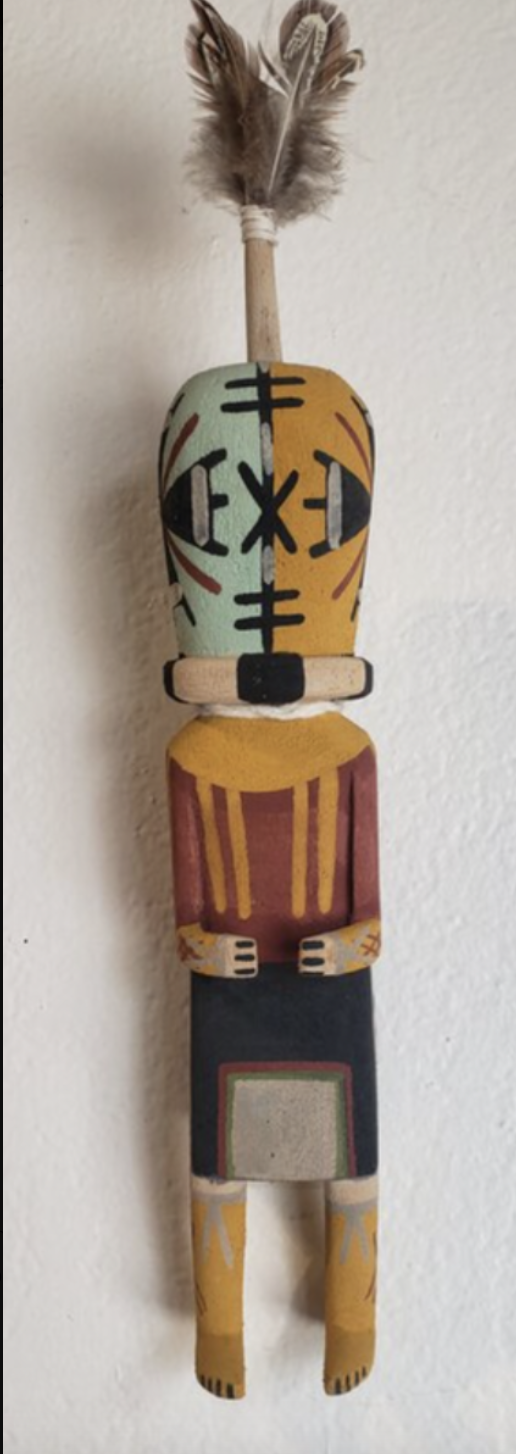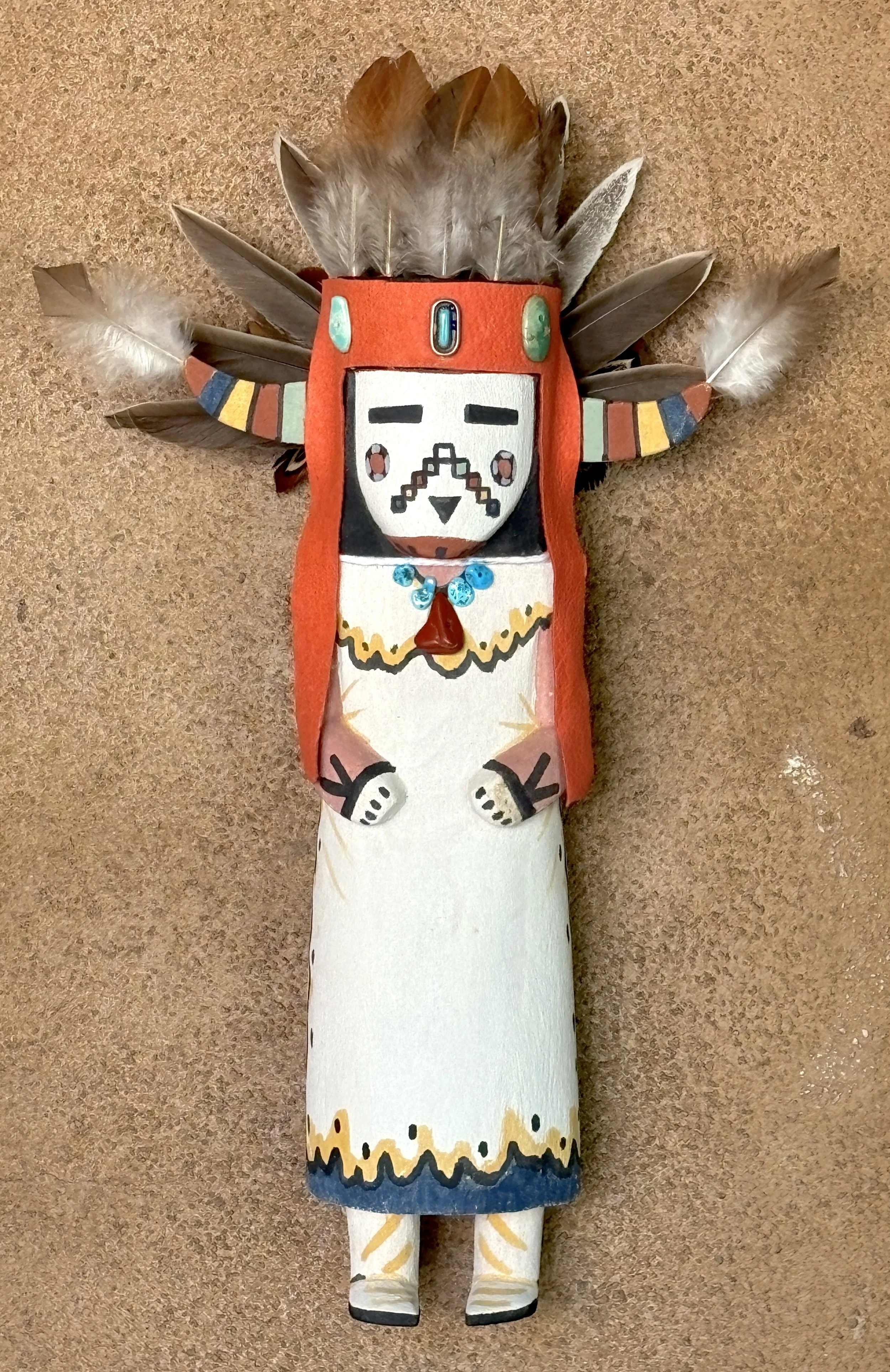Katsinas are spirit beings who are the intermediaries between the Hopi and their deities, carrying the prayers of the Hopis for the continuation of the cycle of life of all living things. They may represent the spirit of plants, animals, forces of natures, places or even other tribes. Some are known for their duties (eg: guard, clown...) and not all names are translatable. They appear in the plazas for Hopi villages for approximately 6 months of the year as they dwell in the katsina or spirit world for the other half of the year.
They are carved from the root of the cottonwood tree - used because the cottonwood grows only where there is an ample and consistent supply of water - rare around the Hopi mesas - and because of the water-seeking nature of the roots, which can grow out and down a couple hundred feet or more in search of the water table. If you are interested in learning more, visit our website
www.hopikatsina.com
Between our Santa Fe and Tucson stores we have somewhere between 400 and 500 katsinas so on our website we can only hope to show you a cross-section. Please contact us if you are looking for something specific that you do not see. We may have it or be able to acquire it for you
For each katsina we sell, we provide an information sheet similar to the ones above. (the Hemis katsina above has been sold)
A book on the Hopi by a Hopi. Currently out of print but you can find copies online. Secakuku provides greater context for the katsinas with insight from the Hopi point of view.
A great book. It profiles nearly 2 dozen Hopi katsina carvers - past and present. $16.95 Paperback.
These four dolls were carved by the late Willard Maktima (1929-2025), grandfather of renowned jeweler, Duane Maktima. Top row, left to right: a Kookopölö, 7 7/8 inches high and $250. A Tasaf katsina, 12.75 inches high and $300.
A Kowaako Mana or Chicken Maiden by Wayland Namingha Jr. This one is 11.75 inches high to feather tip and $280. At right is a Talwíipiki or Lightning katsina by Raynard Lalo. This one is 14.5 inches high and $400. A Huuhuwa* or Cross-legged katsina by Max Curley. 8 7/8 inches high and $260. (ALL in Santa Fe)
This particular carving represents the Huuhuwa or Cross-Legged katsina which is said by some to represent the spirit of an exceptionally kindly man from one of the Hopi villages who lived in the 1800s.
The first two in the row are both made by Shawn Deel. The Ho’ote katsina is 12.5 inches high to feather tips and $750. The Hospo’mana or Roadrunner Maiden was carved by Hongvi Marquez. 7 5/8 inches high to feather tip and SOLD. A Nakyatsopkatsina or Silent Warrior is by Jared Quamahongnewa. It is just under 12 inches high and $275. (ALL in SANTA FE)
On the left is an Omaw (cloud) katsina by Wayland Namingha Jr. 13.5 inches and $350. The second carving is a Pöökhonghoya by Ed Seechoma. 12 inches and $450. The last doll is a Sakwa Hu by Ryon Polequaptewa. 12 inches and $300. (ALL in TUCSON)
A Navajo Clown by Darance “Makwesa” Chimerica. 10 5/8 inches high to feather tips and $325. Next is a Paakwamana or Frog Maiden by Lorren Talashoma. 8.75 inches high and $350. Last in the row is an Umtoynaqa or Thunder Katsina by Raynard Lalo. 11.75 inches high and $360. (ALL IN SANTA FE)
The Alosaka was made by Randy Howato. 13 inches high and $600. A Huhuuwa** by Hongvi Marquez, it is 7 5/8 inches high and $200. At far right is an Anak’china or Longhair katsina by Sandra Suhu. This one is 11.25 inches high and $350. (ALL in SANTA FE)
**This particular carving represents the Huuhuwa or Cross-Legged katsina which is said by some to represent the spirit of an exceptionally kindly man from one of the Hopi villages who lived in the 1800s.
This beautiful Corn katsina was made by Manfred Susunkewa. ca. 2021
It is 13 inches high to tallest feather tip. $1,275. (SANTA FE)
